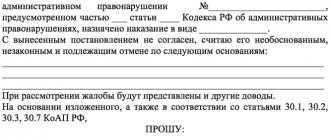Taxi Law in 2021: main provisions
Federal Law No. 69 does not apply exclusively to taxi operations. This legal act regulates changes in individual legislative acts of the Russian Federation, but 4 articles in this law are entirely devoted to reforming the work of the taxi service.
The document consists of 10 articles. They indicate:
- amendments to the Code of Administrative Offenses of the Russian Federation;
- amendments to the Town Planning Code;
- amendments to the Law “On Road Safety”;
- the procedure for the construction and use of parking lots;
- making changes to administrative responsibility.
Ban on working in a taxi with a criminal record.
At the instigation of the Ministry of Transport, the law includes provisions prohibiting persons with a criminal record from engaging in passenger transportation. Taxi drivers cannot be drivers who have been found guilty of the following crimes:
- murder;
- participation in a terrorist act;
- causing bodily harm if the actions were intentional;
- rape.
An exception can be made only for persons who have been given a suspended sentence.
Structure of a legislative act
There are a total of 10 articles in the document. The taxi service includes four of them:
- Article 3 – regulates administrative liability and the imposition of fines;
- Article 7 – introduces Article 36.1 into Federal Law No. 259, which defines the administrative responsibility of taxi companies for the safety of passengers and transported luggage;
- Article 8 – includes taxi services in Federal Law No. 294;
- Article 9 – establishes and regulates the rules regarding registration, the procedure for obtaining a license, requirements for vehicles used, and safety rules.
New fines for taxi drivers in 2021
So, let's start with increased sanctions for taxi drivers. So far, these changes to traffic police fines have not yet been approved. However, the draft law is being read after reading in the Duma, and in the near future they may be adopted and the amendments will come into force.
We are talking about separate fines for taxi drivers for the same violations that other drivers also commit.
Let's look at how high the penalties for taxi drivers can go. Table of new fines for taxis
| What violation? | Current fine | New fine |
| Driving through a red (prohibiting) traffic light signal (Article 12.12 of the Code of Administrative Offenses of the Russian Federation) | 1,000 rubles | 2,000 rubles |
| Driving a car with faulty brakes or steering (or a coupling device, if equipped) - part 2 of article 12.5 of the Code of Administrative Offenses | 500 rubles | 1,000 rubles |
| Guilt in an accident causing minor harm to people's health | Fine from 2.5 to 5 thousand or deprivation of rights for 1-1.5 years | Fine from 5 to 10 thousand or deprivation of rights for 1-2 years |
As you can see, on average, the size of new fines for taxis increases by 2 times. Let us remind you, however, that the corresponding draft law has not yet entered into force and is at the discussion stage.
Features of obtaining a taxi permit
One license is issued only for one vehicle for a period of up to 5 years
Procedure for obtaining a license:
- a package of documents is collected;
- documents are submitted to the Transport Committee of the constituent entity of the Russian Federation, but they can be sent through the State Services portal;
- The issued permit does not have to be collected in person; it can arrive by mail.
Package of documents for obtaining a license:
- a copy of the document on registration with the tax service;
- a copy of the applicant's passport;
- application for a license;
- a copy of the vehicle registration certificate or rental agreement, leasing agreement, PTS, general power of attorney.
The application form can be taken from the State Services portal.
Is it possible to circumvent the law and what are the consequences?
Many drivers who have previously engaged in illegal transportation in their personal vehicles are interested in the question of whether and how it is possible to circumvent the law without any particular consequences for themselves. The law regarding passenger transportation in passenger cars has not been fully finalized and has a number of loopholes that can be used to circumvent its individual parts.
The current law does not contain restrictions regarding the prohibition of issuing licenses only for cars that are personally owned.
This means that cars issued under a general power of attorney or officially rented are suitable for licensing.
The law does not contain clearly defined requirements for taxi paraphernalia, thereby allowing the use of removable or low-quality paraphernalia. The same applies to a taximeter; it can even be a special application on a phone or navigator.
But it is unlikely that you will be able to bypass obtaining a taxi license. If all the previous loopholes in the legislation can be used to your advantage without being subject to administrative punishment, then if you do not have a license you will face a fine of 5 thousand rubles for the first violation. In case of repeated violation, the amount of the fine remains unchanged, and the taxi driver is deprived of his driver’s license for up to 6 months by court decision.
Requirements for a passenger car
Requirements for vehicles:
- matching color scheme. Each region sets it at its own discretion, up to three options are allowed;
- A taxi meter must be installed in a taxi unless payment is made at the only established tariff;
- the color scheme “checkers” must be installed on the sides of the car; there must be an orange light on the roof of the car with the inscription “Taxi”;
- Must have a valid license;
- Passengers must be given checks or other documents confirming payment for travel if there is no cash register;
- There must be a written charter agreement.
Taxi companies must do the following:
- allow only serviceable vehicles in proper technical condition and appearance to operate;
- carry out monitoring of the technical condition of the car before leaving for the route;
- Conduct a pre-trip medical examination of the driver.
Violation of requirements will result in fines. For the absence of identification marks on a vehicle, a fine is provided:
- for the driver – 3000 rubles;
- for an official – 10,000 rubles;
- for a legal entity – 50,000 rubles.
A fine can be issued even if only one identification mark is missing
For failure to issue a check or other document replacing it, the following penalties are provided:
- for the driver – 1000 rubles;
- for an official – up to 10,000 rubles;
- for a legal entity – up to 30,000 rubles.
If it is established that passengers are transported without a charter agreement, the penalties are as follows:
- for the driver – 5000 rubles;
- for an official – 50,000 rubles;
- for a legal entity – up to 200,000 rubles.
If the traffic police establishes violations in the operation of a taxi, then in addition to a fine, an order is issued to eliminate them - a period of 1 month. If after this period the violation is not eliminated, the license may be revoked. A license can also be revoked for the following reasons:
- driving a car by a driver with less than 3 years of experience;
- repeated violation of the charter agreement;
- violation of legal requirements regarding the technical condition of a car;
- the taxi driver commits an accident with a fatal outcome, as well as if there are aggravating circumstances.
Experts said that the adoption of the taxi bill could collapse the legal market of the industry
The law regulating taxi services continues to be actively discussed on various platforms
The day before it became known that the new version of the bill on taxi services allows the authorities of Moscow, St. Petersburg and Sevastopol to introduce regulated tariffs for taxi services. The document also suggests a ban on driving a taxi for a driver with three unpaid fines and the mandatory installation of sensors to monitor taxi driver fatigue. However, this is only a small part of the content of the bill.
The proposals have already been criticized by ONF experts and market participants, while the Moscow authorities, on the contrary, supported the initiative.
Deputy of the State Duma of the Russian Federation Vyacheslav Lysakov believes that at the stage when the bill has been “stuck” for several years in the State Duma Committee on Transport and Construction, it makes no sense to submit both the initiative as a whole and individual articles of the document for discussion.
“The original version of the text of the bill, adopted three years ago in the first reading, of which I am the author, was revised by the Committee beyond recognition. Its concept has been changed, including a proposal to regulate tariffs in Moscow, St. Petersburg and Sevastopol. But this is a tiny part of the bill - the text takes up about a hundred pages and there is no point in taking individual provisions out of context. The fact is that if the original version had a notification purpose, now the bill has a permissive purpose, when it is necessary to request permission for any actions. And now the document contains a lot of bureaucratic barriers, obstacles on the way of those wishing to work in the taxi industry, both individual entrepreneurs and legal entities. The regulation of tariffs in cities under federal jurisdiction is also cited as an obstacle,” Vyacheslav Lysakov told Moskovskaya Gazeta. — The new text of the bill has already received four negative reviews from representatives of the state legal department of the President of the Russian Federation. Moreover, this text was prepared in violation of the regulations - the author did not send out the newsletter. In addition, those who supported the initiative did not see the co-authors of this text, and there are many such deputies. But even members of the State Duma Committee on Transport and Construction did not see these amendments, and there are about two hundred of them, they do not know who their authors were, and they did not study the negative reviews that the State Legal Department of the President of the Russian Federation sent to the head of the Committee. It seems like everything is being done in secret.”
The parliamentarian drew attention to the fact that the bill is designed more for the Moscow taxi market than other regions, however, as Fr.
“The provisions that are formulated in the document, in particular those relating to the self-employed and the regulation of tariffs, can lead to a large number of legal carriers leaving the market, as well as an increase in the arrival time of a taxi after ordering, an increase in price, and so on. That is, in terms of quality, this bill does not stand up to any criticism, which is confirmed by four negative reviews in the state legal department of the President of the Russian Federation. Now the text has been sent there for the fifth time. Although there is an alternative option - this is a high-quality bill from the Federation Council, which was introduced at the end of December, but was rejected by the Committee on formal grounds. This bill reflects digital realities and includes self-employed people and software platforms that currently exist on the market. In other words, this is a modern bill that meets all the risks of the current taxi market,” says Vyacheslav Lysakov. “I hope that the State Duma will have enough common sense to reject the tortured document, returning it for the first reading. Because it has been changed beyond recognition, its quality gets worse from time to time. And it would be wrong to pull out certain provisions from there and comment on them, because people will understand this as a decision made, supported by the State Duma, which is not true.”
According to the deputy, there has never been such a precedent in the state legal department of the President of the Russian Federation - that the relevant Committee received several negative reviews of the bill and continued to try to lobby for it, despite the fact that the adoption of the law could result in serious losses for the industry.
Deputy Chairman of the Commission on Security and Interaction with the Public Monitoring Committee of the Public Chamber of the Russian Federation, Alexander Kholodov, shares the same opinion.
“For the last decade they have been introducing bills on taxis, but I just can’t pass them. Perhaps because there are different opinions on how it should be and different interests. And, in fact, the taxi market has already turned more into a market for IT services, rather than transportation. Therefore, in my opinion, it is futile to discuss any proposals until they are accepted,” Alexander Kholodov told Moskovskaya Gazeta. — If we are talking about what is necessary first of all, then, in my opinion, it is necessary to somehow register the status of aggregators that do not have their own fleet of cars. At the same time, they actually have a monopoly on the taxi industry in our country, but it is not clear what they are responsible for: they say, we are an IT company and we simply tell you where there are free cars. At the same time, aggregators set prices and dictate terms to carriers. Therefore, the time is long overdue for regulation, first of all, of such IT companies, and not of the carrier, which was overregulated a long time ago, but this is of no use.”
Earlier, Moskovskaya Gazeta wrote that prices for taxi rides could soon be set by the state.
New transportation rules
Also, from January 1, 2021, new rules for the transportation of passengers and luggage by road, approved by the relevant Decree of the Government of the Russian Federation No. 1586, are in effect.
Among the most significant changes are the following:
- the definition of a passenger taxi contains the obligation of a charter agreement, at the same time, special attention is paid to the charterer’s card,
- at the end of the trip, the taxi driver is obliged to give the passenger a receipt (it can be electronic, and the aggregator can issue it - for example, in the case of Yandex Taxi for non-cash payment),
- the passenger must be informed of the order number, taxi car and the time of arrival of the car before boarding,
- the passenger has the right to dictate the route to the driver (otherwise the taxi driver himself chooses the shortest route without violating traffic rules),
- a taxi light on the roof of a car becomes mandatory,
- as well as checkers with an approved image (clause 90 of the PPRF),
- In the passenger compartment on the right front there should be a card with the name of the organization, tariffs and license.
This regulatory act came into force at the very beginning of 2021 and is valid until 2027 inclusive.
Changes for drivers
In the old Rules, taxi drivers were required to have their business cards on the front dashboard containing their photograph. The new rules exempt them from this. But what the driver must have on his right side is the name of the organization, contact phone numbers, license number with its validity period.
I take everything I own with me
The requirements for hand luggage and baggage in taxis have also been updated. In his hands, the passenger can carry with him everything that will fit into the passenger compartment door and will not create obstacles for the driver, will not pose a danger to others and the condition of the car. The requirements for luggage are similar - its dimensions must allow the trunk to close. In addition, a passenger can legally take a four-legged pet with him into the cabin: a dog, but strictly muzzled and on a bedding, small animals and birds in special carriers or cages.
It is worth noting that every year taxis as a mode of transport only become more convenient and safer, both for the client and for the carrier.
Advanced order data recording
According to the innovations, services providing taxi services must retain information about each call on which they carried out transportation for at least six months. This can be done both in electronic format and in the old fashioned way - on paper, for example, in the form of a traditional magazine. Moreover, the amount of recorded information has become much larger since 2021. If previously only the date of the order, the place and time of delivery of the car, as well as the make of the vehicle were included in such a registration database, now the registration number of the car, the personal data of the driver, the location where the trip was completed, and what was indicated in order (requirements regarding car class, child seat and other additional options). All this is necessary to successfully resolve possible controversial situations that may arise during the provision of services. The presence of such an expanded database will help resolve conflicts and act as protection for both parties - the driver and the passenger. If something goes wrong, facts will be needed to support the trip and its details, information can always be provided, provided that the statute of limitations has not yet expired.











